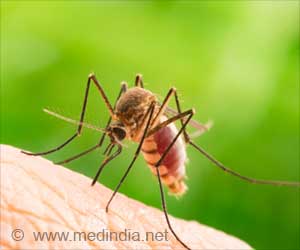Spain and Uruguay on Tuesday reported their first deaths from swine flu, as Canada expressed fears that young people were particularly vulnerable to the virus.
Spain and Uruguay on Tuesday reported their first deaths from swine flu, as Canada expressed fears that young people were particularly vulnerable to the virus.
In Spain, a 20-year-Moroccan woman died at a Madrid hospital on Tuesday, becoming the country's first fatality from the A(H1N1) infection.The woman, who was seven months pregnant and suffered from asthma, died at dawn of a respiratory illness provoked by the infection, said a health ministry statement.
She had been receiving treatment for several days, but her condition deteriorated on Monday, prompting doctors to carry out a Caesarean delivery of the baby, who was fragile but unaffected by the virus, the ministry said.
Three other patients were be in a serious condition in Spanish hospitals, health officials said.
Her death was the fourth from swine flu in Europe.
Late on Monday, Britain reported its third swine flu death -- a schoolgirl whom officials said had underlying health problems.
"Late today a woman died in Montevideo with multiple organ failure and tests confirmed the presence of the A(H1N1) virus," the ministry said in a statement.
Health authorities in Canada meanwhile expressed alarm that young people were being hit hardest by the infection.
Preliminary data showed the virus had mostly infected people under the age of 20 in Canada, and relatively few people over 65.
During seasonal influenza outbreaks, it is usually the elderly who account for 25 percent of infections, and most deaths.
"So this is quite different," Chief Public Health Officer David Butler-Jones said.
"Although we do expect some cases to be severe in any influenza outbreak, especially when there is underlying factors such as chronic lung disease or diabetes, there are some cases (now) where the individual was previously healthy before catching this virus and rapidly has progressed to severe illness and required a ventilator," he said.
Figures released by the World Health Organisation on Monday, meanwhile, put the death toll from the pandemic at 311 and the number of total infections at 70,893 -- up more than 10,000 on the figures released the previous Friday.
US researchers said in a new study published on Tuesday that the virus responsible for the Spanish flu in 1918 had created a viral dynasty that persists today.
The research, published in the New England Journal of Medicine, said the H1N1 virus, which caused tens of millions of deaths, was also transmitted from humans to pigs during the pandemic and continues to evolve today.
"The 1918-1919 influenza pandemic was a defining event in the history of public health," said Anthony Fauci, the director of the National Institutes of Allergy and Infectious Diseases and a co-author of the study.
Jeffrey Taubenberger, the senior investigator at NIAID's Laboratory of Infectious Diseases, said all human-adapted influenza A viruses were descendants, direct or indirect, of that founding virus.
"Thus we can be said to be living in a pandemic era that began in 1918," he added.
Source-AFP
LIN
 MEDINDIA
MEDINDIA




 Email
Email





